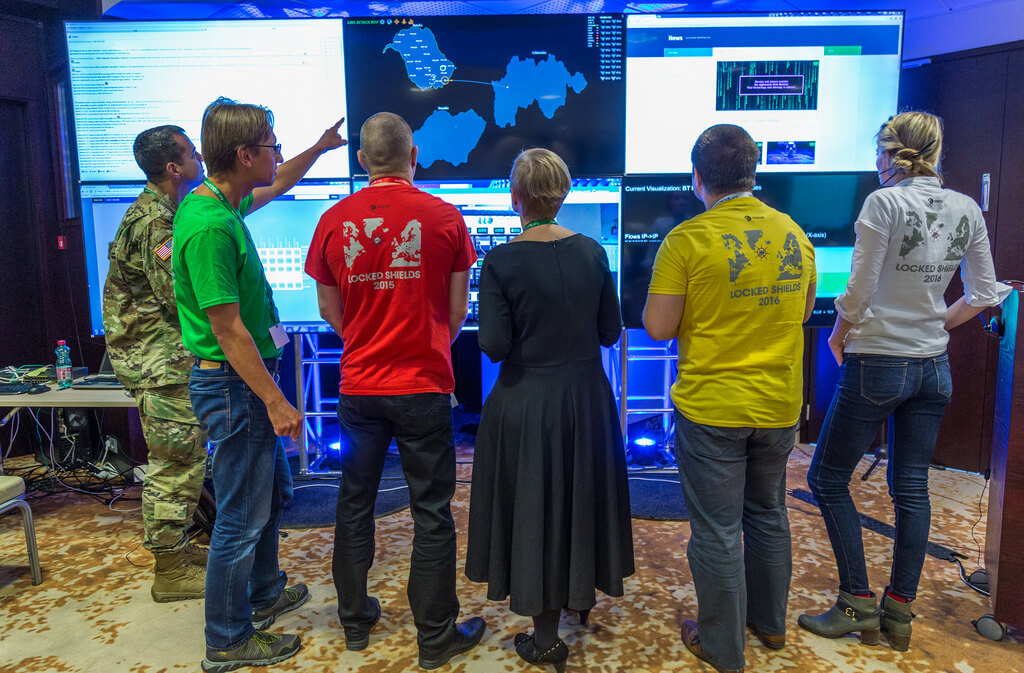
Photo from Locked Shields 2016. The gallery is available on the website of the Centre: https://ccdcoe.org/
Locked Shields 2017, the largest and most advanced international live-fire cyber defence exercise in the world, took place on April 24-28 in Tallinn, Estonia. Approximately 800 participants from 25 nations were involved in the cyber exercise.
While the organizers of the exercise were located in Tallinn, Estonia, the participating Blue Teams, defenders of their respective networks, had secure online access to the exercise networks from their home bases.
The annual scenario-based real-time network defence exercise focuses on training the security experts who protect national IT systems on a daily basis. In 2017 the Blue Teams were tasked with maintaining the services and networks of a military air base in a fictional country. According to the exercise scenario, more than 2500 possible attacks could be carried out against Blue Teams, who experienced severe attacks on their electric power grid system, drones, military command and control systems and other operational infrastructure. The size and scope of technologies, networks, and devices used in the exercise reflect current trends in cybersecurity, with emphasis on specialized systems.
Although the main focus of the exercise remains technical, a strategic track was introduced this year, to provide a decision making exercise for policy officers and legal advisors. In addition to business IT environments, several specialized IT systems were introduced in Locked Shields in 2017, reflecting the current threat landscape.
The annual Locked Shields exercise has been organized by the NATO Cooperative Cyber Defence Centre of Excellence (NATO CCD COE) since 2010. Each year, teams are put under intense pressure to maintain the networks and services of a fictional country. This includes handling and reporting incidents, solving forensic challenges, and responding to legal and strategic communications and scenario injections by the referee team.
Locked Shields 2017 is organized in cooperation with the Estonian Defence Forces, the Finnish Defence Forces, the Swedish Defence Uni-versity, the British Joint Army, the United States European Command, Air Operations COE and Tallinn University of Technology. More than a dozen industry partners from many countries participated in the exercise.
The NATO CCD COE is a community of nations providing a 360-degree look at cyber defence, with expertise in the areas of technology, strategy, operations and law. The Tallinn-based international military organization focuses on interdisciplinary applied research, consultations, training and exercises in cyber security. Sponsoring Nations are Belgium, the Czech Republic, Estonia, France, Germany, Greece, Hungary, Italy, Latvia, Lithuania, the Netherlands, Poland, Slovakia, Spain, Turkey, the United Kingdom and the United States. Contributing Participants are Austria and Finland, and Sweden has applied for the status.
Agu Ets














